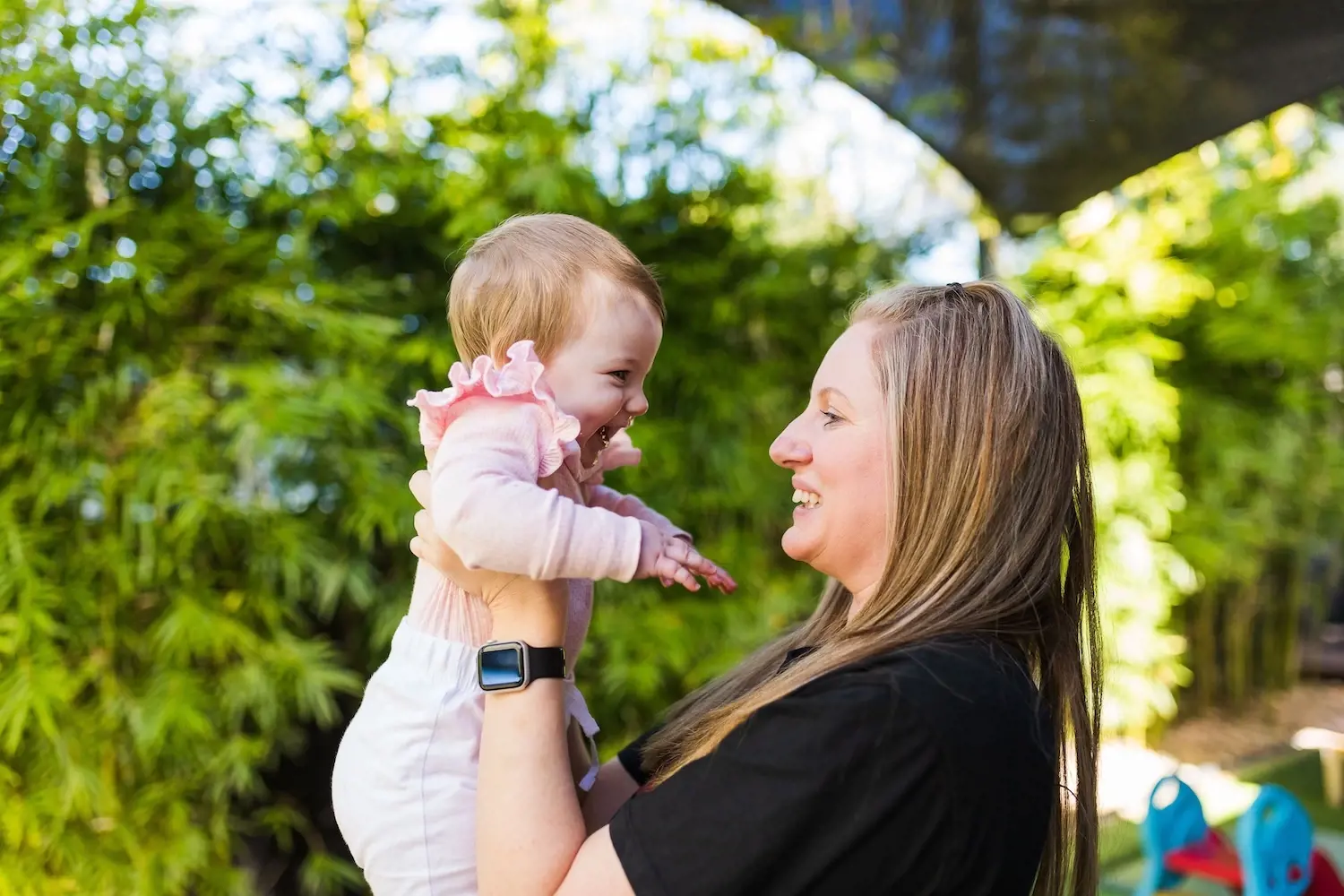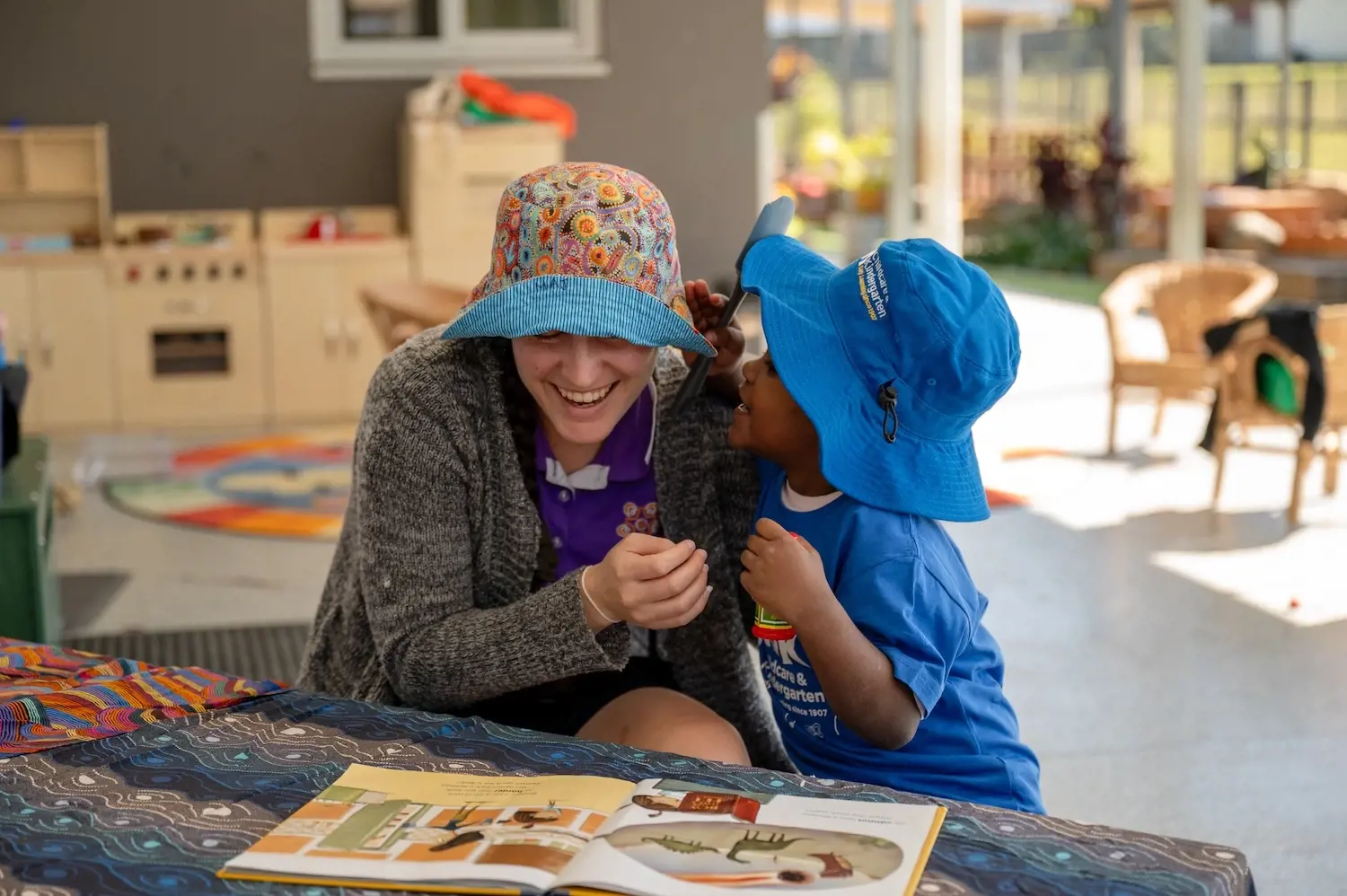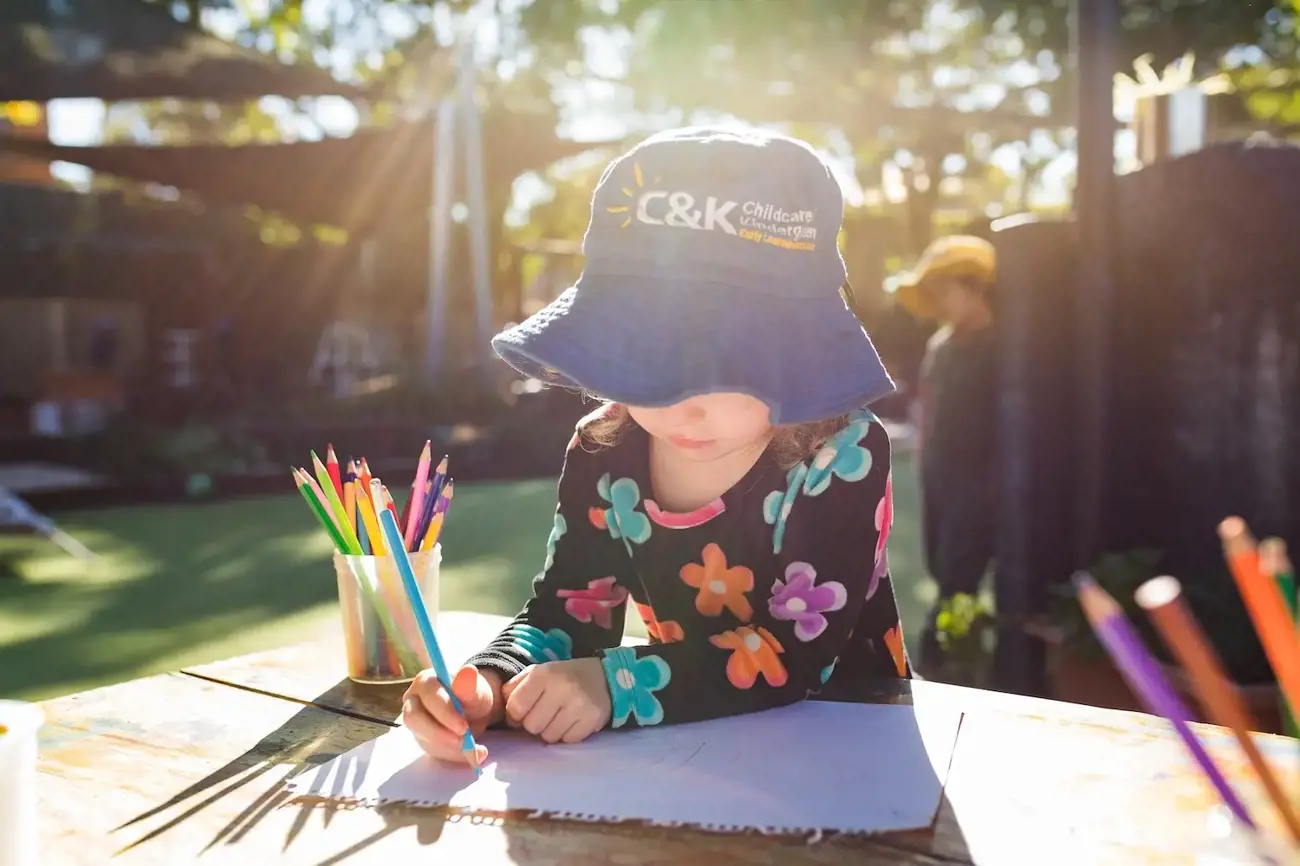At childcare pick up, a friend asks, “How are you?”
You reply, “So busy, really busy”, while simultaneously reading the email from school about the latest head lice outbreak, working out the logistics of stopping at the chemist on the way to swimming lessons – do we need milk? – Teams chat pings – wriggling toddler on your hip.
Familiar? We know being busy is a regular feeling for parents of children of all ages right now. Parents and caregivers are juggling working, life admin, study, socialising, parenting, extra-curricular activities, quality family time, endless notifications, plus clutching moments for exercise, self care, or just a minute to breathe.
The pace in which we do life is faster than ever. The glorification of busy, of achieving things, of filling our days, and our children’s, with places to be and things to accomplish.
But children don’t glorify busy. As parents, we need to embrace the slow in their early years. By dedicating unhurried, slow-time with, and for, our children - we can benefit their development in so many ways.
By embracing the slow with babies, toddlers and young children, we can create space for:

Improved communication
Slower interactions encourage deeper conversations and enhanced listening. By taking your time, you give your child the opportunity to observe, understand, and eventually anticipate how you, as an adult in their life, will respond. This approach also helps you notice the subtle cues in your child’s early attempts to communicate. Your attentiveness is key in affirming your bond with your child.
Better observation skills
Children learn to notice details in their environment. Children investigate and learn through their senses; this important process supports the child to make sense of their surroundings.
Stronger relationships
This slowing partnership forges trust and grows the already innately strong attachment between parent and child
Increased independence
Allowing children to complete tasks at their own pace builds confidence and positive self-worth. When children are given opportunities to master real life tasks, they learn that they are active citizens with a part to play in their world.
Improved motor skills
Unhurried physical activities aid in developing coordination. Through movement, children experience their world in new ways!
Enhanced learning
Children absorb information better when given time to process and ask questions.
Emotional development
A slow pace allows adults to support children by giving time and space for the child to experience their emotions and make sense of what they’re feeling. Through the attentiveness of adults, children learn to organise their internal feelings and later, this understanding forms the basis of self-regulation. A calm environment helps children know that it’s okay to have feelings – for your child, these feelings are big.
Creativity boost
Unstructured time encourages imagination and problem-solving skills. This is when you reap the feel-good benefits of play!
Reduced stress
A slower pace can lower cortisol levels in both children and adults. This simple act equips you to relish in the special and fleeting time that is childhood.
Enhanced mindfulness
Slowing down teaches children to be present in the moment.

Think back to your childhood. What are some of your favourite memories? We know things like climbing trees, snuggling in bed with the whole family on the weekend, and performing shows with your siblings and cousins will be right up there. What parts of your children’s life do you want them to look back on with fondness? You can cultivate these slow moments of joy by starting small, with little moments of dedicated unstructured, unhurried time throughout your week.
We understand life is different in 2024, and the external pressures can be extensive. Parents rely on quality early childhood education and care for their children whilst they juggle work, study and other commitments. At C&K, slowing down with our babies, toddlers and young children is part of our curriculum. C&K’s early childhood curriculum Listening and Learning Together: C&K Curriculum Approach is used for children from birth to 5 in all our kindergartens and childcare centres across Queensland.
C&K educators skilfully partner with all children and families to create caring and supportive learning environments, with time dedicated to build respectful and meaningful relationships. We want all children to feel safe, secure, and trust their educators. Deep trusting bonds are something that cannot be rushed, and we have all the time in the world to connect with our young children in ways that support their social and emotional growth and well-being.
In the theme of resisting busy – what part of your day could you intentionally slow down right now? Is there one transition or routine that stresses you and your child out the most? Maybe it’s going from playing to getting into the car. Something as simple as having a quick game of “I Spy” on the way to the car, or pretending to be a bird and flapping your wings on the way can reduce anxiety, frustrations, and meltdowns – plus it’s fun for everyone!

Some moments are worth slowing down for, and we are grateful to get to witness the joys of childhood first-hand, every day, alongside thousands of children across Queensland. We would love to welcome you and your child to visit one of our 330 centres to experience a C&K childhood for yourself. Enrolments are now open for 2025 and beyond.
Visit www.candk.asn.au/enrolnow to secure your place.



































